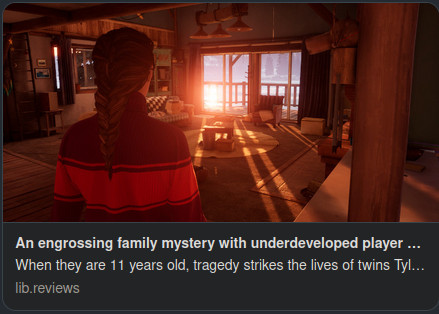One feature common to social media sites like Twitter and Mastodon is support for rich previews that tell you more about the link that you’re about to click on.
Rich previews typically include an image as well as an excerpt.
When you create or edit a review, you can now select the image that will be used for previews on social media and other sites that implement Open Graph.
To select a social media image:
-
Upload the image, either on the review subject page (like this one), or in the review editor by clicking the “Cloud upload” icon.
-
In the review editor, click “Additional settings”.
-
Select the image from the available options.
-
Save or publish your review.
That’s it. When you include a link to the review in social media, you should now see a preview like this one:

Please note that this currently only works for individual review links, not for review subject pages.
This is still a brand-new feature, so expect the unexpected! Let us know if you encounter any issues.
(As part of this update, team settings can now also be found in the “Additional settings” section to de-clutter the review editor a bit.)
